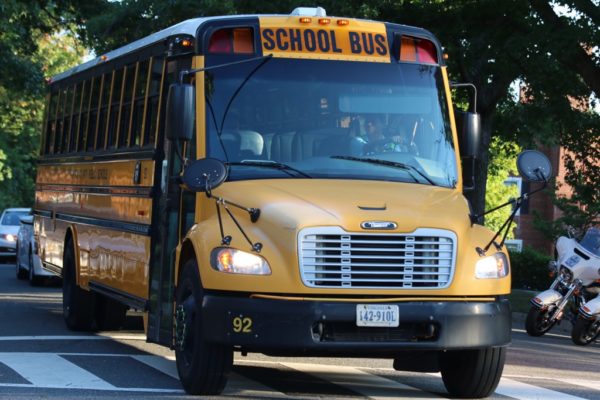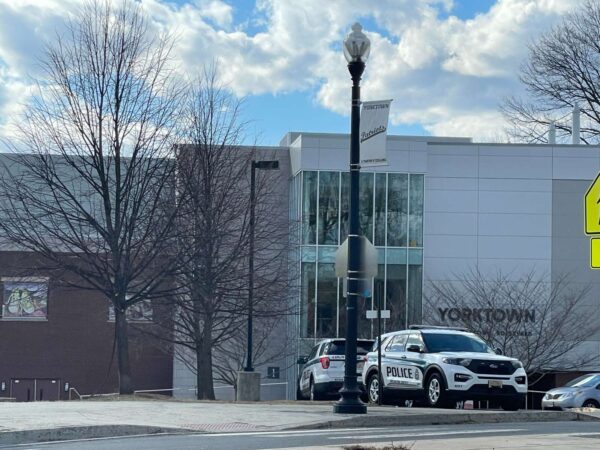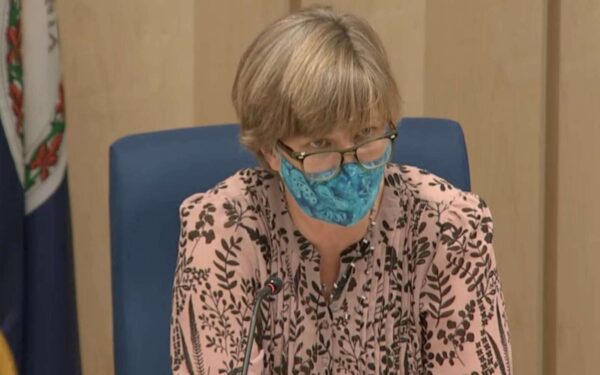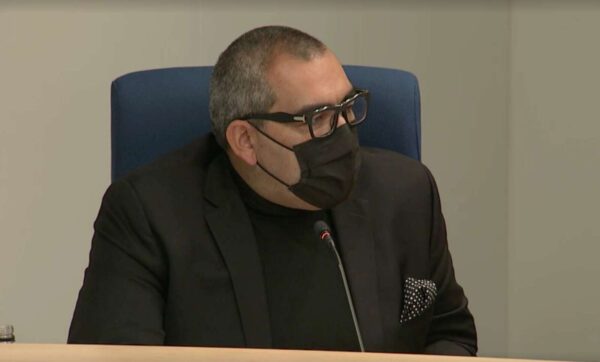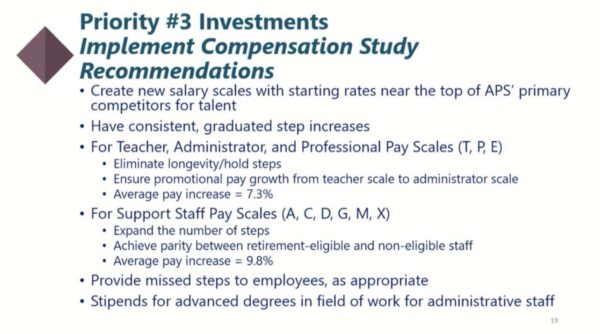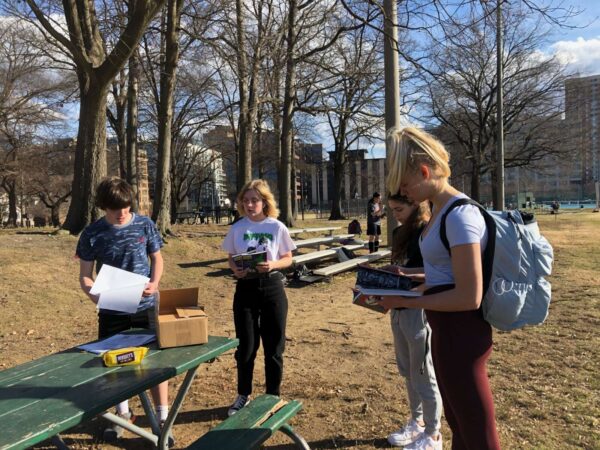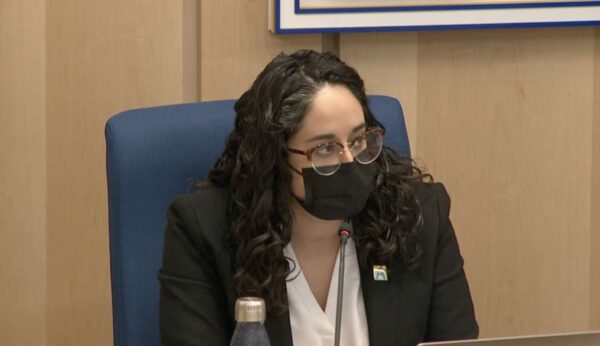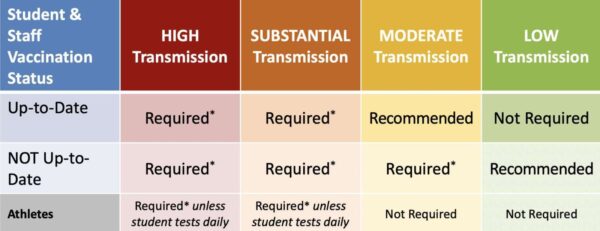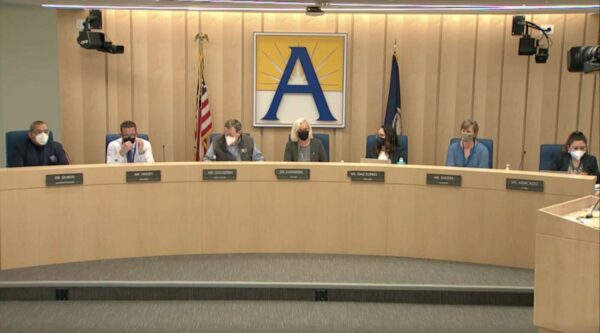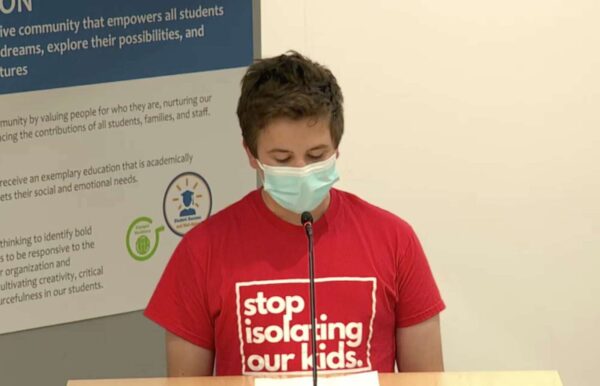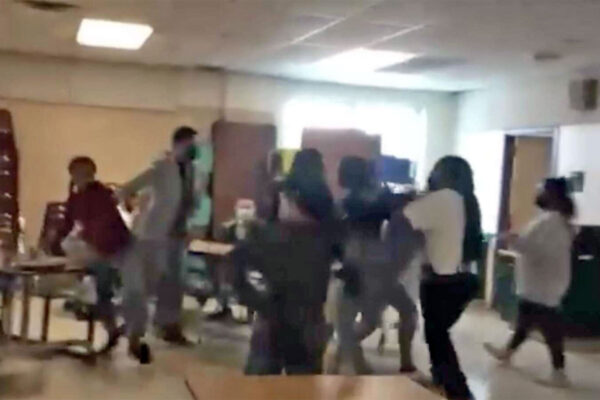
Over the last four days, fights involving kids and weapons broke out near Gunston and Thomas Jefferson middle schools, while Wakefield High School had multiple trash cans set on fire.
Those are the most recent incidents in what some parents — mostly to middle schoolers — say is a rash of fights, threats of violence and other concerning behaviors happening in the public school system.
Earlier this month, for example, a mother told the School Board her daughter at Gunston Middle School was attacked by other students.
“My daughter’s eye is messed up,” Shana Robertson told the Arlington School Board on March 10. “She was jumped by two boys and two girls, and nothing has been done.”
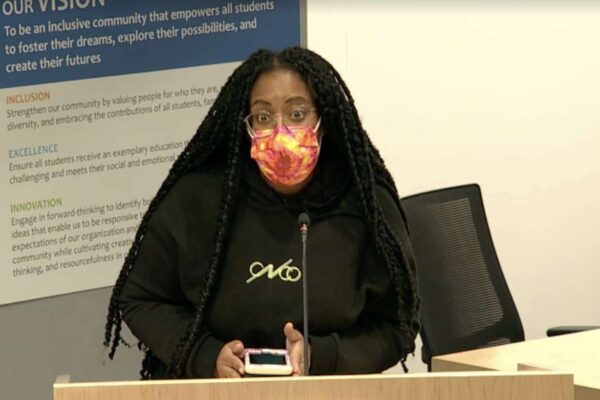
ARLnow spoke to multiple parents who say these issues are happening across the school system. We also reviewed several videos of brawls on school grounds, or near them, recorded by students this year.
Arlington Public Schools confirms to ARLnow that the school system has, in fact, noticed an increase in the number of reported fights and incidents this school year.
“This rise in concerning behaviors follows the national trend that is not unique to Arlington, as students re-acclimate to being back in school and face increased stress and anxiety, as well as other mental health and social-emotional challenges due to COVID and the trauma students experienced as a result,” APS spokesman Andrew Robinson said.
The trend has prompted some parents to call for more disciplinary actions for students and a renewed conversation about whether to reinstall Arlington County Police Department School Resource Officers, who were removed over the summer out of concern for racial disparities in juvenile arrests.
Opinions on reinstalling SROs are mixed. Some say this would help keep students in line and some say they may help — but they will not address the root cause. Others say SROs would not only fail to address the root cause, but they would also needlessly drive up the number of arrests.
“This is happening across the country, even at schools with police officers,” says Symone Walker, a member of the Arlington branch of the NAACP’s education committee and a former ARLnow columnist. “You really have to start addressing the emotional needs, the physical needs, the academic needs. Of course, there’s stuff going on at homes where families are stressed. Parents are angry and the kids are soaking it all up — it’s a much deeper problem.”


